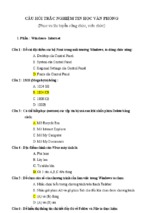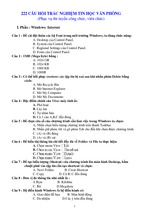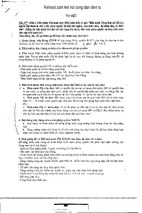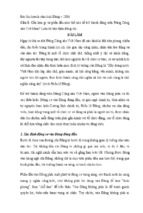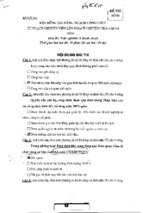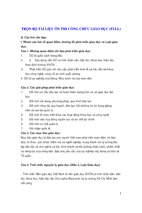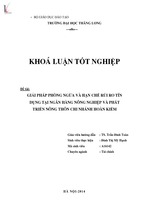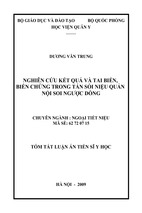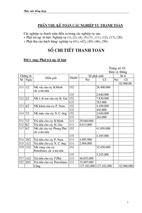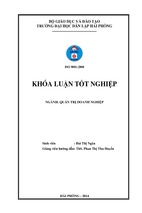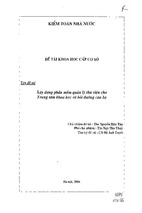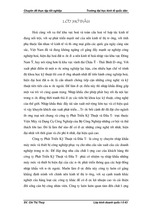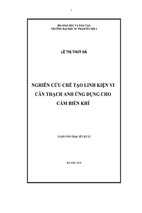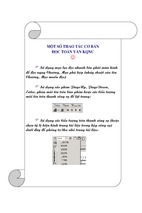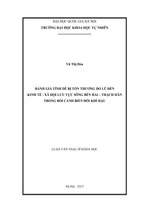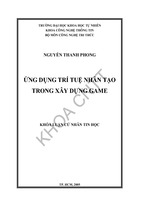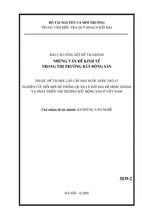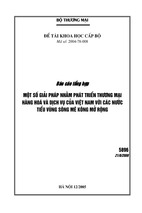VOCABULARY
9780 110 7619500 CALD 4 C M Y K
M Y K
in Use
ISBN 978 0521 71266 8
ISBN 978 0521 67746 2
C1–C2
CEFR level:
English Profile
www.englishprofile.org
Cambridge English exams:
English Vocabulary
in Use
C2
Proficiency (CPE)
Advanced
C1
Advanced (CAE)
Third Edition
Upper Intermediate
with answers and eBook
B2
First (FCE)
B1 +
Cambridge
Advanced Learner’s Dictionary
Fourth Edition
For upper-intermediate to advanced learners of English
Ideal for IELTS, BEC, and Cambridge English: First, Advanced, and Proficiency
exam preparation.
English
Collocations
With clear definitions and over 140,000 words, phrases, meanings, and
examples, plus hundreds of pictures and illustrations, this dictionary is perfect
as a reference tool and as a study companion.
Informed by the Cambridge International Corpus and correlated to English
Vocabulary Profile, it is also perfect for exam preparation.
The CD-ROM contains the complete dictionary and recordings in British and
American English.
in Use
NEW! Focus on Writing section deals with all the essential aspects of
academic, formal, and informal writing.
NEW! Up-to-date vocabulary includes words from the areas of
technology, media, language, society, and lifestyle, plus important
words for academic study.
Advanced
Learner error information shows the most common errors made by
learners of English, so that you can avoid making the same mistakes.
How words work together
for fluent and natural English
English Vocabulary Profile correlation shows which words and
meanings are known by learners at what level, so you can prioritize
your vocabulary learning.
Includes eBook
with audio
Advanced
Learner’s
Dictionary
Fourth Edition
NEW FOCUS ON
WRITING SECTION
With CD-ROM
Felicity O’Dell
Michael McCarthy
Preliminary (PET)
A2
Key (KET)
over 230,000 pronunciations of words, names and phrases
new words and names of people and places in the news
The World of English Pronunciation – lively essays on aspects of
pronunciation by leading experts in the field
in Use
Glossary of terms used in phonetics and phonology
notes on the relationship between spellings and sounds
Advanced
PLUS: The CD-ROM provides these extras:
spoken British and American pronunciations of every headword
‘record yourself’ function to practise your pronunciation
Search by alphabetic characters or phonetic symbols
Vocabulary reference
and practice
with answers
With CD-ROM
NEW FOCUS ON
WRITING SECTION
ISBN 978 1 107 61950 0
Improve your understanding of differences in spoken English, with
comparisons of everyday conversations and formal situations.
ENGLISH
With CD-ROM
English
EnglishPronunciation
Pronunciationin
inUse
Use
Advanced
Advanced
En
Engglish
lishPronunciation
PronunciationininUse
UseAdvanced
Advancedisisfor
forlearners
learnersofofadvanced
advanced
level.
level.The
Thematerial
materialisisaddressed
addressedtotothe
theindividual
individuallearner
learnerwho
whomay
maybe
be
working
workingalone,
alone,but
butititcan
canalso
alsobe
beused
usedininthe
theclassroom.
classroom.
This
Thisbook
bookcovers
coversallallaspects
aspectsofofpronunciation
pronunciationinincommunication
communication
lish
including
includingword
wordstress,
stress,connected
connectedspeech
speechand
andintonation.
intonation.En
Engglish
Pronunciation
PronunciationininUse
UseAdvanced
Advancedrecognises
recognisesthe
theimportance
importanceofof
pronunciation
pronunciationfor
forlistening
listeningasaswell
wellasasspeaking
speakingand
andlearners
learnersare
are
provided
providedwith
withboth
bothreceptive
receptiveand
andproductive
productivepractice.
practice.
lishPronunciation
PronunciationininUse
UseAdvanced
Advanced
En
Engglish
easy-to-usetwo-page
two-pageunits:
units:explanations
explanationsand
andexamples
examplesofofkey
key
••6060easy-to-use
pronunciation
pronunciationpoints
pointsare
arepresented
presentedon
onleft-hand
left-handpages
pageswith
withaarange
range
ofofexercises
exerciseson
onfacing
facingright-hand
right-handpages.
pages.
Audiocomponents:
components:allallthe
theexamples
examplesand
andexercises
exercisesare
arerecorded
recordedand
and
••Audio
available
availableon
onaudio
audioCD.
CD.
Clearmodel
modelfor
forrepetition:
repetition:aaBritish
Britishaccent
accentisisused
usedasasaamodel
modelfor
for
••Clear
learners
learnerstotolisten
listentotoand
andrepeat.
repeat.
Exposuretotodifferent
differentaccents:
accents:learners
learnersare
aregiven
giventhe
theopportunity
opportunitytoto
••Exposure
listen
listentotoaarange
rangeofofdifferent
differentEnglish
Englishaccents
accentsand
andlearn
learnabout
abouttheir
their
similarities
similaritiesand
anddifferences.
differences.
Additionalreference
referencesection:
section:including
includingfun
funexercises
exercisestotopractise
practise
••Additional
phonemic
phonemicsymbols,
symbols,further
furtherpractice
practiceininconsonant
consonant
clusters
clustersand
andword
wordstress,
stress,aareading
readinglist
listand
andaa
glossary
glossaryofofspecialised
specialisedterms.
terms.
The
The
Cambridge
Cambridge
International
International
Corpus
Corpus
(CIC)
(CIC)
is ais collection
a collection
of of
over
over
1 billion
1 billion
Learner-friendlyanswer
answerkey.
key.
words
words
of of
real
real
spoken
spoken
and
and
written
written
••Learner-friendly
Martin Hewings
Also
Alsoavailable:
available:Advanced
AdvancedGrammar
GrammarininUse
Use
English
EnglishVocabulary
VocabularyininUse
UseAdvanced
Advanced
Cambridge
CambridgeEnglish
EnglishPronouncing
PronouncingDictionary
Dictionary
ISBN
ISBN
978
978
0 521
0 521
61403
61403
0 0
ISBN
ISBN
978
978
0 521
0 521
67746
67746
2 2
WRITING SECTION
CD-ROM
English
Pronunciation
Advanced
Advanced
Martin
MartinHewings
Hewings
ISBN
ISBN 978
978 00 521
521 61956
61956 11
Daniel Jones
edited by Peter Roach,
Jane Setter & John Esling
Also available
with answers and eBook
Dictionary
18th Edition
Second Edition
Self-study
Self-studyand
and
classroom
classroomuse
use
Michael McCarthy
Felicity O’Dell
English.
English.
The
The
texts
texts
areare
stored
stored
in in
a a
database
database
that
that
cancan
bebe
searched
searched
to to
seesee
how
how
English
English
is is
used.
used.
The
The
CICCIC
contains
contains
over
over
4545
million
million
words
words
of of
spoken
spoken
English,
English,
including
including
thethe
5 million-word
5 million-word
CANCODE
CANCODE
corpus,
corpus,
collected
collected
jointly
jointly
byby
Cambridge
Cambridge
University
University
Press
Press
and
and
thethe
University
University
of of
Nottingham.
Nottingham.
The
The
spoken
spoken
corpus
corpus
from
from
thethe
CICCIC
was
was
used
used
in in
writing
writing
this
this
book.
book.
www.cambridge.org/corpus
www.cambridge.org/corpus
ISBN
ISBN
978
978
0 521
0 521
68087
68087
5 5
ISBN
ISBN 978
978 00 521
521 71740
71740 33
NEW FOCUS ON
ISBN 978 1 107 61950 0
English
Pronouncing
With CD-ROM
ADVANCED GRAMMAR IN USE
ENGLISH VOCABULARY IN USE ADVANCED
CAMBRIDGE ENGLISH PRONOUNCING DICTIONARY
ISBN 978 1 107 53930 3
ISBN 978 1 107 63776 4
Better Learning
Includes eBook
with audio
is our simple approach where
ISBN 978 0 521 15253 2
deeper insights help shape richer content that
drives stronger results.
Discover more:
cambridge.org/betterlearning
Martin Hewings
ISBN 978 1 107 53930 3
English Idioms in Use Advanced is a vocabulary book for advanced-level learners.
It is primarily designed as a self-study reference and practice book but it can
also be used for classroom work.
•
60 easy-to-use two-page units. Idioms are presented and explained on lefthand pages with a range of practice exercises on right-hand pages.
PRONUNCIATION
Self-study and
classroom use
Also available
•
Presents and explains idioms in typical contexts using short texts and clear
example sentences.
•
Based on a corpus of real written and spoken language to ensure the most
useful and relevant idioms at this level are presented.
•
Provides valuable information about register and usage to help students
develop more natural-sounding English.
IN USE
•
Promotes good learning habits with study tips and follow-up tasks.
•
Helps you avoid common pitfalls with error warning notes highlighting
typical mistakes made by learners at this level.
Advanced
ENGLISH PHRASAL VERBS IN USE ADVANCED
ENGLISH COLLOCATIONS IN USE ADVANCED
ENGLISH VOCABULARY IN USE ADVANCED
Third Edition
Cambridge
18th
Edition
C1–C2
Cambridge
Dictionary
Self-study and classroom use
dictionary.cambridge.org
ISBN 978 0 521 70780 0
9780 521 15255 6 Cambridge English Pronouncing Dictionary cvr C M Y K
M Y K
9781107539303 Hewings: Advanced Grammar in Use With answers & ebook 3rd Edition Cover C
9780 110 7619500 CALD 4 C M Y K
English
Vocabulary
in Use
The 18th edition features:
NEW FOCUS ON
WRITING SECTION
With CD-ROM
•
Remember words more effectively with lots of opportunities for
personalised practice.
•
listen to new words as well as reading them
•
bookmark pages, highlight text and add notes to help you remember
words.
NEW
COVER
ISBN XX
NEW
COVER
ISBN XX
ENGLISH
IDIOMS
IN USE
60 units of vocabulary
reference and practice
Also available
Self-study and
classroom use
Second Edition
CEF
Advanced
C1–C2
Martin Hewings
NEW
COVER
Advanced
On the CD-ROM:
• Two extra exercises for each unit
Mac OSX 10.6, 10.7 or 10.8
• Learn useful collocations from a wide range of topics relevant to modern life such as:
opening gambit, work up an appetite and star-studded cast
• Avoid common mistakes and improve your exam results by studying error warnings
– based on real student errors from Cambridge ESOL papers for CAE, CPE and IELTS
• Develop better learning strategies through study tips and follow-up activities
• 60 easy-to-use two-page units: collocations are presented and explained on
left-hand pages with a range of practice exercises on right-hand pages.
• Presents and explains approximately 1,500 collocations in typical contexts using
short texts, dialogues, tables and charts.
• Contains a comprehensive answer key and full index for easy reference.
• Highlights register to help students choose the appropriate language for particular
situations.
• Informed by the Cambridge English Corpus to ensure that the most frequently used
collocations are presented.
English
Phrasal Verbs
The 18th edition of Daniel Jones’s classic work is the definitive guide to
contemporary English pronunciation.
Advanced
Advanced
Simon Haines
Mark Nettle
with Martin Hewings
Understand how pronunciation works, including individual
sounds, word stress, connected speech and intonation.
•
Editio
Cambridge
n
English Pronouncing Dictionary
18th Edition
English pronunciation – from aardvark to zymotic and Adobe to Zuma!
English
Vocabulary
with answers
dictionary.cambridge.org
ENGLISH
IDIOMS
IN USE
Advanced
Advanced
• A ‘common mistakes’ feature which helps you avoid frequent errors.
To find out more about the English Vocabulary in Use series, visit
www.cambridge.org/elt/inuse
• Personalised, printable tests – ideal for
A self-study
reference and practice book
exam practice
For Windows®
Vista or Windows® 7 / 8learners
and
forXP,advanced
of English
Also available: English Collocations in Use Advanced
B1
Cambridge Advanced Learner’s Dictionary Fourth Edition
English Collocations in Use
Advanced
Collocations are word combinations that frequently appear together. This book will help
you master collocations, which will make your English sound more natural and fluent.
English Collocations in Use Advanced
Also available: English Phrasal Verbs in Use Advanced
Cambridge Advanced Learner’s Dictionary
English Vocabulary in Use Advanced
ISBN 978 0521 68418 7
best-selli
series
ng
English
English Pronunciation
Pronunciation in
in Use
Use
NEW FOCUS ON
WRITING SECTION
•
Hewings
Hewings
With CD-ROM
Practise your pronunciation with simple ‘listen and repeat’
activities, modelled with a clear British English accent.
Cambridge Pronouncing
Dictionary
Fourth Edition
ISBN 978 1 107 61950 0
world’s
grammar
McCarthy and O’Dell English Vocabulary in Use Advanced
Advanced Grammar in Use Supplementary Exercises with answers
With CD-ROM
Advanced Learner’s
Advanced
Learner’s
Dictionary
NEW FOCUS ON
WRITING SECTION
Simon Haines
Mark Nettle
with Martin Hewings
Cambridge
Fourth Edition
Cambridge
Dictionary
with answers
dictionary.cambridge.org
•
New
The
English Vocabulary in Use
Advanced
Second Edition
Do you want to improve your vocabulary quickly? English Vocabulary in Use
Advanced is fully aligned to the needs of English language learners at C1–C2
level, so it will help you learn the words and phrases you require. This second
edition of the best-selling vocabulary book is ideal for self-study, but can also
be used in the classroom. It now offers:
• Fully updated units informed by the English Profile wordlists, so you
learn the most important vocabulary at advanced level.
• New words presented and explained in context, so that you can clearly
see how to use them.
• Lots of opportunities for personalised practice, to help with the
learning process.
O’Dell and McCarthy English Collocations in Use Advanced
Advanced
Learner’s
Dictionary
Details and access code inside.
Learner error information shows the most common errors made by
learners of English, so that you can avoid making the same mistakes.
English Vocabulary Profile correlation shows which words and
meanings are known by learners at what level, so you can prioritize
your vocabulary learning.
Advanced Learner’s
Cambridge
Dictionary
• Online version for Windows and Mac (requires Chrome browser)
Haines & Nettle with Hewings
English Vocabulary Profile correlation shows which words and
meanings are known by learners at what level, so you can prioritize
your vocabulary learning.
• listen to examples to help with listening and pronunciation
• do exercises, save answers and check them with an answer key
• bookmark pages, highlight text and add notes.
*eBook available for both tablets and PCs/Macs:
• Downloadable version for iOS and Android (requires free Cambridge Bookshelf app)
Also available: Advanced Grammar in Use Supplementary Exercises
Cambridge Advanced Learner’s Dictionary
Advanced Grammar in Use Extra Activities app
NEW! Focus on Writing section deals with all the essential aspects of
academic, formal, and informal writing.
NEW! Up-to-date vocabulary includes words from the areas of
technology, media, language, society, and lifestyle, plus important
words for academic study.
Cambridge
Advanced Grammar in Use Supplementary Exercises with answers
NEW! Focus on Writing section deals with all the essential aspects of
academic, formal, and informal writing.
NEW! Up-to-date vocabulary includes words from the areas of
technology, media, language, society, and lifestyle, plus important
words for academic study.
Learner error information shows the most common errors made by
learners of English, so that you can avoid making the same mistakes.
Advanced Learner’s
Haines & Nettle with Hewings
Cambridge
Advanced Learner’s Dictionary
Also inside is a code for an interactive eBook*. This has the same grammar
explanations and exercises as in the printed book. This makes it perfect for
studying grammar anytime and anywhere.
With the eBook learners can:
CEFR Levels C1, C2
Cambridge
Advanced Learner’s Dictionary
Fourth Edition
For upper-intermediate to advanced learners of English
Ideal for IELTS, BEC, and Cambridge English: First, Advanced, and Proficiency
exam preparation.
With clear definitions and over 140,000 words, phrases, meanings, and
examples, plus hundreds of pictures and illustrations, this dictionary is perfect
as a reference tool and as a study companion.
Informed by the Cambridge International Corpus and correlated to English
Vocabulary Profile, it is also perfect for exam preparation.
The CD-ROM contains the complete dictionary and recordings in British and
American English.
ISBN 978 0 521 78807 6
Listen to a variety of English accents, to hear the similarities and
the differences.
A self-study reference and practice book
for advanced learners of English
Advanced Grammar in Use
With answers and eBook • Third Edition
A self-study reference and practice book for advanced learners of English
Advanced Grammar in Use Third Edition meets the advanced-level learner’s needs
with comprehensive grammar coverage and a user-friendly layout. This edition:
• contains 100 units of grammar reference and practice materials
• facilitates self-study by featuring a Study planner to help learners identify
which grammar to focus on
• has a comprehensive Grammar reminder section to allow learners to
double-check language areas they have already studied
• is informed by the Cambridge International Corpus to ensure the language
is authentic and up to date
• provides ideal support for students preparing for IELTS, Cambridge
English: Advanced or Cambridge English: Proficiency examinations.
Hewings Advanced Grammar in Use with answers and eBook
Also available: Advanced Grammar in Use Supplementary Exercises
Cambridge Advanced Learner’s Dictionary
Advanced Grammar in Use Extra Activities app
Learn to speak clearly with 60 units of explanations, examples and
exercises.
•
9780521619561 HEWINGS:
HEWINGS: EPIU
EPIU ADVANCED
ADVANCED CVR
CVR CMYBLK
CMYBLK
9780521619561
Full details and access code inside.
9781108403498 - HEWINGS - ENGLISH PRONUNCIATION ADVANCED C M Y K
• Online version for Windows and Mac (requires Chrome browser)
•
This book comes with over four hours of free downloadable audio.
See code and instructions inside.
978-0-521-70780-0 MCCARTHY & O’DELL :ENGLISH COLLOCATIONS IN USE ADVANCED C M Y K
• do exercises, save answers and check them with an answer key
• bookmark pages, highlight text and add notes.
*eBook available for both tablets and PCs/Macs:
• Downloadable version for iOS and Android (requires free Cambridge Bookshelf app)
CEFR Levels C1, C2
Understand and be understood in English.
Pronunciation explanations, audio and practice for advanced
level (C1-C2) learners of English. Perfect for both self-study and
classroom activities.
9780 110 7619500 CALD 4 C M Y K
• listen to examples to help with listening and pronunciation
Advanced
9781107637764 McCarthy & O’Dell: English Vocabulary in Use with awnswers & CD-ROM 2nd Edition Cover C
M Y K
With the eBook learners can:
Cambridge
9781107539303 Hewings: Advanced Grammar in Use With answers & ebook 3rd Edition Cover C
Also inside is a code for an interactive eBook*. This has the same grammar
explanations and exercises as in the printed book. This makes it perfect for
studying grammar anytime and anywhere.
Fourth Edition
Be confident about what you are learning, thanks to Cambridge
research into how English is really spoken and written.
Felicity O’Dell
Michael McCarthy
ISBN XX
Better Learning is our simple approach where
deeper insights help shape richer content that
Free downloadable
audio
drives stronger results.
Discover more:
cambridge.org/betterlearning
ISBN 978 1 108 40349 8
ADVANCED GRAMMAR IN USE
ENGLISH PRONUNCIATION IN USE ADVANCED
ENGLISH IDIOMS IN USE ADVANCED
ENGLISH
VOCABULARY
Vocabulary
reference and
practice
Advanced
Michael McCarthy
Felicity O’Dell
ISBN 978 1 316 62973 4
Better Learning is our simple approach where
deeper insights help shape richer content that
drives stronger results.
Discover more:
cambridge.org/betterlearning
IN USE
Third Edition
Advanced
• provides ideal support for students preparing for IELTS, Cambridge
English: Advanced or Cambridge English: Proficiency examinations.
For upper-intermediate to advanced learners of English
•
with ebook
• is informed by the Cambridge International Corpus to ensure the language
is authentic and up to date
Ideal for IELTS, BEC, and Cambridge English: First, Advanced, and Proficiency
exam preparation.
Learn words in context, with 101 different topics, including ‘Applying
for a job’, ‘Illness’ and ‘Easily confused words’.
ENGLISH IDIOMS IN USE
• has a comprehensive Grammar reminder section to allow learners to
double-check language areas they have already studied
IN USE
ENGLISH PRONUNCIATION IN USE
• facilitates self-study by featuring a Study planner to help learners identify
which grammar to focus on
With clear definitions and over 140,000 words, phrases, meanings, and
examples, plus hundreds of pictures and illustrations, this dictionary is perfect
as a reference tool and as a study companion.
•
O’Dell and McCarthy
• contains 100 units of grammar reference and practice materials
The
wo
gra rld’s
mm be
ar st-se
seri llin
es
g
ENGLISH
PRONUNCIATION
Martin Hewings
A self-study reference and practice book for advanced learners of English
Informed by the Cambridge International Corpus and correlated to English
Vocabulary Profile, it is also perfect for exam preparation.
Expand your vocabulary with easy to understand explanations and
practice exercises.
*The ebook has the same content as the printed book and works on Macs, PCs and
tablets. Online version for Windows and Mac (requires Chrome browser). Downloadable
version for iOS and Android tablets (requires free Cambridge Bookshelf app). Instructions
and access code inside.
Advanced Grammar in Use Third Edition meets the advanced-level learner’s needs
with comprehensive grammar coverage and a user-friendly layout. This edition:
The CD-ROM contains the complete dictionary and recordings in British and
American English.
•
Also inside is a code for an ebook*. With the ebook you can:
Advanced Grammar in Use
With answers and eBook • Third Edition
ISBN 978 0 521 78807 6
The words you need to communicate with confidence.
Vocabulary explanations and practice for advanced level (C1-C2) learners
of English. Perfect for both self-study and classroom activities.
Hewings Advanced Grammar in Use with answers and eBook
978 1 316 63006 8 McCarthy & O’Dell: English Vocabulary in Use Advanced Cover C
Advanced
ENGLISH VOCABULARY IN USE
M Y K
IN USE
McCarthy and O’Dell
ENGLISH
Includes ebook
with audio
ENGLISH
VOCABULARY
Vocabulary
reference and
practice
with answers
and ebook
Third Edition
IN USE
Advanced
Michael McCarthy
Felicity O’Dell
University Printing House, Cambridge CB2 8BS, United Kingdom
One Liberty Plaza, 20th Floor, New York, NY 10006, USA
477 Williamstown Road, Port Melbourne, VIC 3207, Australia
4843/24, 2nd Floor, Ansari Road, Daryaganj, Delhi – 110002, India
79 Anson Road, #06–04/06, Singapore 079906
Cambridge University Press is part of the University of Cambridge.
It furthers the University’s mission by disseminating knowledge in the pursuit of
education, learning and research at the highest international levels of excellence.
www.cambridge.org
Information on this title: www.cambridge.org/elt
© Cambridge University Press 2017
This publication is in copyright. Subject to statutory exception
and to the provisions of relevant collective licensing agreements,
no reproduction of any part may take place without the written
permission of Cambridge University Press.
First published 2002
Third Edition 2017
20 19 18 17 16 15 14 13 12 11 10 9 8 7 6 5 4 3 2 1
Printed in Dubai by Oriental Press
A catalogue record for this publication is available from the British Library
ISBN 978-131663006-8 Edition with answers and ebook
ISBN 978-131663117-1 Edition with answers
ISBN 978-131663118-8 ebook
Cambridge University Press has no responsibility for the persistence or accuracy
of URLs for external or third-party internet websites referred to in this publication,
and does not guarantee that any content on such websites is, or will remain,
accurate or appropriate. Information regarding prices, travel timetables, and other
factual information given in this work is correct at the time of first printing but
Cambridge University Press does not guarantee the accuracy of such information
thereafter.
Contents
Thanks�
Introduction�
Work and study
1 Cramming for success: study and
academic work�
2
3
4
5
6
7
6
8
Education: debates and issues�
10
Applying for a job�
12
Job interviews�
14
At work: colleagues and routines�
16
At work: job satisfaction�
18
At work: careers�
20
People and relationships
8 Describing people: positive and
negative qualities�
9
5
22
Describing people: appearance
and mannerisms�24
10
11
12
13
14
15
Describing people: personality and
character traits�
26
Relationships: friends forever�
28
Relationships: ups and downs�
30
Emotions and reactions�
32
Negative feelings�
34
Birth and death: from cradle to grave� 36
Leisure and lifestyle
16 Free time: relaxation and leisure�
17 All the rage: clothes and fashion�
18 Home styles, lifestyles�
19 Socialising and networking�
20 The performance arts: reviews
38
40
42
44
and critiques�46
21
22
23
24
The visual arts�
48
Talking about books�
50
Food: a recipe for disaster�
52
Dinner’s on me: entertaining and
eating out�
54
Travel
25 On the road: traffic and driving�
26 Travel and accommodation�
27 Attracting tourists�
56
58
60
The environment
28 Describing the world�
29 Weather and climate�
30 Brick walls and glass ceilings�
31 Taking root and reaping rewards�
32 The animal kingdom�
33 Our endangered world�
62
64
66
68
70
72
Society and institutions
34 Here to help: customer service�
35 Authorities: customs and police�
36 Beliefs�
37 Festivals in their cultural context�
38 Talking about language�
39 History: since the dawn of civilisation�
40 The haves and the have-nots�
41 British politics�
42 International politics�
43 The letter of the law�
44 War and peace�
45 Economy and finance�
46 Personal finance: making ends
74
76
78
80
82
84
86
88
90
92
94
96
meet�98
The media
47 The media: in print�
48 The media: internet and email�
49 Advertising�
50 The news: gathering and
100
102
104
delivering�106
English Vocabulary in Use Advanced
3
Health
51 Healthcare�
52 Illness: feeling under the weather�
53 Medical language�
54 Diet, sport and fitness�
108
110
112
114
Technology
55 Industries: from manufacturing
to service�116
56
57
58
Technology and its impact�
118
Technology of the future�
120
Energy: from fossil fuels to
windmills�122
Basic concepts
59 Space: no room to swing a cat�
60 Time: once in a blue moon�
61 Motion: taking steps�
62 Manner: behaviour and body
124
126
128
63
64
65
66
67
68
Sounds: listen up!�
132
Weight and density�
134
All the colours of the rainbow�
136
Speed: fast and slow�
138
Cause and effect�
140
69
70
Difficulties and dilemmas�
71
Number: statistics and quantity�
76
77
78
4
Spot the difference: making
comparisons�142
144
Modality: expressing facts,
opinions, desires�146
148
150
152
154
and praising�
156
Promises and bets�
158
Reminiscences and regrets�
160
Agreement, disagreement
and compromise�162
English Vocabulary in Use Advanced
Academic writing: making sense�
164
Academic writing: text structure�
166
Writing: style and format�
168
Whatchamacallit: being indirect�
170
84
The way you say it�
Give or take: more vague
expressions�172
Words and meanings
85 Abbreviations and acronyms�
86 Prefixes: creating new meanings�
87 Suffixes: forming new words�
88 Word-building and
174
176
178
180
word-blending�182
language�130
Functional vocabulary
72 Permission: getting the go-ahead�
73 Complaining and protesting�
74 Apology, regret and reconciliation�
75 A pat on the back: complimenting
79
80
81
82
83
89
90
91
English: a global language�
184
Easily confused words�
186
One word, many meanings�
188
Fixed expressions and
figurative language
92 Collocation: which words go
together�190
93
94
Metaphor: seeing the light�
95
96
Brushing up on phrasal verbs�
192
Idioms for everyday situations
and feelings�194
196
Connotation: making associations� 198
Language variation
97 Register: degrees of formality�
98 Divided by a common language�
99 Language and gender�
100 In the headlines�
101 Red tape�
200
202
204
206
208
Answer key�
210
Phonemic symbols�
276
Index�
277
Acknowledgements�
299
Enhanced ebook�
301
Thanks and acknowledgements
Joy Godwin wrote two units for the Third Edition: Unit 3, Applying for a job, and Unit 4,
Job interviews. The publishers would like to thank Joy for her contribution to this edition.
English Vocabulary in Use Advanced
5
Introduction
To the student
This book has been written to help you expand your vocabulary at the advanced level. You already
know thousands of English words, but to express yourself fully and in a sophisticated way at the
advanced level, you will ideally need between 6,000 and 8,000 words, so increasing your vocabulary
is very important for your general progress in English, as well as for any academic, professional or
vocational needs you may have where English plays an important role. At the advanced level, as well
as learning new words, you will need to learn more about the subtle connotations of words, aspects
of register and style and how words combine into collocations, compounds and fixed phrases. In
this book, there are over 3,000 new words and expressions for you to learn. You will find them on the
left-hand page of each unit. Every new word or phrase is used in a sentence, or in a conversation, or
is in a table, or has a picture with it, or has some explanation of what it means. On the right-hand
page there are exercises and other activities to help you practise using the words and to help you
to remember them. Where our research shows that learners frequently make errors, we give you
advice on how to avoid the most common ones, as well as other useful language tips. The book has
been written so that you can use it yourself, without a teacher. You can do the units in any order you
like, but we have grouped them into themes, so you might wish to work through several units on a
particular area of vocabulary before moving to a new one.
The Answer key at the end of the book is for you to check your answers to the exercises after you
do them. The key sometimes has more than one answer. This is because often there is not just
one correct way of saying something. Where you are asked to talk about yourself, in the Over
to you activities, we do not provide answers, since this is your opportunity to work completely
independently and in a very personal way, so everyone’s answer will be very different.
The Index at the end of the book has all the important words and phrases from the left-hand pages.
The Index also tells you how to pronounce words. There is a table of phonemic symbols to help you
understand the pronunciation on page 276.
You should also have a dictionary with you when you use the book. You can use a paper dictionary,
an electronic one, or you can go to Cambridge Dictionaries Online at http://dictionary.cambridge.org.
Access to a dictionary is useful because sometimes you may want to check the meaning of something
or find a word in your own language to help you remember the English word. Sometimes, you will
also need a dictionary for the exercises; we tell you when this is so.
To learn a lot of vocabulary, you have to do two things:
1 Study each unit of the book carefully and do all the exercises. Check your answers in the key.
Repeat the units after a month, and then again after three months, and see how much you have
learnt and how much you have forgotten. Repeating work is very important.
2 Develop ways of your own to study and learn new words and phrases which are not in this
book. For example, every time you see or hear an interesting phrase, write it in a notebook,
and write who said it or wrote it, and in what situation, as well as what it means. Making notes
of the situations words are used in will help you to remember them and to use them at the
right moment.
We hope you like this book. You can also go to the other books in the series which have more
specialised titles: English Idioms in Use, English Phrasal Verbs in Use and English Collocations in Use,
which are available at advanced level, as well as Academic Vocabulary in Use. Find out more at the
Vocabulary in Use website: www.cambridge.org/elt/inuse.
6
English Vocabulary in Use Advanced
To the teacher
This book can be used in class or as a self-study book. It is intended to take learners from an
upper-intermediate level of vocabulary to an advanced level. The vocabulary has been chosen
for its usefulness in everyday situations, and we consulted the Cambridge English Corpus,
a billion-word-plus written and spoken corpus of present-day English which includes a huge learner
corpus, to help us decide on the words and phrases to be included and to help us understand the
typical problems learners encounter at the advanced level. We also consulted the English Vocabulary
Profile to make sure that the words in the book are a representative sample of vocabulary that is
typical of the Common European Framework levels C1 and C2. Visit the English Vocabulary Profile at
www.cambridge.org/elt/inuse.
At the advanced level, as well as learning a large number of new words and expressions, learners
are often directing their efforts towards academic, professional or vocational needs, and so we
have tried to offer a modern, sophisticated vocabulary that will underpin their work in other areas.
The new vocabulary (on average 40 items per unit) is presented with explanations on the left-hand
page, and there are exercises and activities on the right-hand page. There is an Answer key and an
Index with pronunciation for all the target vocabulary. The key at the end of the book is for students
to check their answers to the exercises after they do them. The key sometimes has more than one
answer. This is because often there is not just one correct way of saying something. Where students
are asked to talk about themselves, in the Over to you activities, we do not provide answers, since
this gives learners the opportunity to work completely independently and in a very personal way,
so everyone’s answer will be very different.
The book focuses not just on single words, but on useful phrases and collocations, and the vocabulary
is illustrated in natural contexts. The book is organised around everyday topics, but also has units
devoted to basic concepts such as time, modality, manner and varieties and style. Typical errors are
indicated where appropriate, based on information from the Cambridge Learner Corpus, and the
most typical meanings and uses are focused on for each key item.
The right-hand pages offer a variety of different types of activities, some traditional ones such as
gap-filling, but also more open-ended ones and personalised activities which enable learners to talk
about their own lives. Although the activities and exercises are designed for self-study, they can be
easily adapted for pairwork, groupwork or whole-class activities in the usual way.
When the learners have worked through a group of units, it is a good idea to repeat some of the work
(for example, the exercises) and to expand on the meaning and use of key words and phrases by
extra discussion in class, and find other examples of the key items in other texts and situations. This
can be done at intervals of one to three months after first working on a unit. This is important, since
it is usually the case that a learner needs five to seven exposures to a word or phrase before they can
really begin to know it, and no single book can do enough to ensure that words are always learnt
first time. It is especially important at the advanced level to discuss in detail the meanings and uses
of words and phrases and how they combine and collocate with one another.
Your students can also consult the more specialised higher level books in this series: the advanced
levels of English Idioms in Use, English Phrasal Verbs in Use and English Collocations in Use, or they
may wish to work on academic vocabulary by using Academic Vocabulary in Use, all by the same
authors as this book. They can also test themselves on the knowledge they have gained from this
and the other books in the series by using the separate books of tests that accompany the series.
You can find out more at the Vocabulary in Use website: www.cambridge.org/elt/inuse.
We hope you enjoy using the book.
English Vocabulary in Use Advanced
7
Cramming for success: study and
academic work
1
A
Study and exams
Before an exam, some students cram1
for it. Even if you’re a genius2, you’ll
have to do some revision. If the exam
happens every year, you can revise by
looking at past papers3. Some things
can be memorised or learnt (off ) by
heart. But rote-learning4 is not sufficient
for most subjects. It is also possible to
use mnemonics5. However, all things
considered, the best idea is to bury
yourself in your books6 and to study
intensively7 until you know the subject
inside out8.
B
1
study in a very concentrated way
for a short time
2
an exceptionally clever person
3
exam papers from previous years
4
learning purely by repetition
5
/niˈmɒnɪks/ tricks that help
you remember something, for
example: ‘i’ before ‘e’ except after
‘c’ is a mnemonic for English
spelling (e.g. friend, but receive)
6
spend the maximum time
studying
7
in a very focused way
8
know it completely
Academic writing
composition could be just 50–100 words, often used for school work
essay longer than a composition, more serious, hundreds or thousands of words
assignment a long essay, often part of a course, usually thousands of words
project like an assignment, but emphasis on student’s own material and topic
portfolio a collection of individual pieces of work; may include drawings and other examples of
creative work as well as writing
dissertation a long, research-based work, perhaps 10–15,000 words, for a degree or diploma
thesis a very long, original, research-based work, perhaps 80–100,000 words, for a higher degree (e.g. PhD)
It’s a good idea to start with a mind map1 when preparing an essay. Always write a first draft2
before writing up the final version. Your essay should be all your own work; plagiarism3 is a very
serious offence in colleges and universities. It is an increasing problem because it is so easy to cut
and paste from materials available on the internet, and students have to sign a plagiarism form
to say that the work they are handing in is all their own and that they acknowledge4 any sources
they have used. There is usually a deadline5. After the essay is submitted6, it will be assessed7
and usually you can get feedback8.
1
diagram that lays out ideas for a topic and how they are connected to one another 2 first, rough version
/�pled�ərzəm/ using other people’s work as if it was yours 4 give details of 5 date by which you must hand
in the work 6 handed in; formal 7 evaluated and given a grade 8 comments from the teacher/tutor
3
C
Aspects of higher academic study
1
less formal is do research
magazines with academic
articles (we do not use
the word magazine to talk
about this kind of academic
publication)
3
get hold of (it) on the internet
4
system where libraries
exchange books/journals with
one another
2
HOME
1
FACULTY
RESEARCH
University academics carry out research and are expected to read academic
journals2, which publish papers/articles on specialised subjects. If a library
does not have a copy of a book or journal, you may be able to access it online3
or you can usually get it through an inter-library loan4. Open educational
resources5 are particularly convenient for many students. Academic study can
be very demanding, and some students drop out6, but the majority survive till
finals7 and become well-qualified8 members of their future professions.
5
online materials that can be freely used by teachers and students anywhere 6 leave the course before the
end 7 last exams before the end of a college or university course 8 with the right formal qualifications
8
English Vocabulary in Use Advanced
Exercises
1.1
Correct the wrong usage of words to do with written work in these sentences.
1 His PhD assignment was 90,000 words long and was on the history of US place names.
2 Little Martha did her first dissertation in school today. It was called ‘My family’.
3 We have to hand in an essay at the end of the course. It can consist of up to five different
pieces of work.
4 The teacher gave us the title of this week’s project today. We have to write 1,000 words on the
topic of ‘If I ruled the world’ and hand it in next Monday.
5 At the end of this course, you have to do a 5,000-word thesis which will be assessed, and the
grade will contribute to your final degree.
6 I think I’ll do a study of people’s personal banking habits for my MSc composition. It has to be
about 12,000 words.
7 I’ve chosen to do the portfolio instead of the two exams, because I like to do one single piece of
work where I can research something that interests me personally.
1.2
Rewrite this text using words and phrases from the opposite page instead of the
underlined words.
When I’m studying in a very focused way because I’m preparing
hard for an exam, I don’t see any point in looking up exam papers
from previous years, nor is there any point in just learning things by
memory. I know some people develop very clever memory tricks
to help them remember the material, but there’s no real substitute
for rereading and going over the term’s work. It’s a good idea to
have some sort of diagram showing different ideas to organise your
thoughts, and memory-learning is useful, but in a limited way. At the
end of the day, you just have to read a huge amount until you feel
you know the subject 100%.
1.3
Answer these questions.
1
2
3
4
5
6
7
8
9
10
1.4
What do we call the first attempt at writing something, e.g. an essay?
What word means ‘the date by which you must do something’?
What word means ‘using someone else’s ideas as if they were yours’?
What are more formal words for ‘to hand in’ and for ‘to mark’?
What phrasal verb do we use when someone doesn’t complete their course?
What is another word for an academic article? Where can you read them?
What is the name of the system for getting books from other libraries?
What word means ‘the comments you get back from the teacher about your work’?
What word can you use for a person who is extraordinarily intelligent?
What is a more formal way of saying ‘do research’?
Choose the best word from the opposite page to complete these sentences.
1 If you quote an article in an essay, you must
your source, giving details of author
and title.
2 Open educational
can be particularly useful for students who do not have easy
access to a university library.
3 How much
have you done for tomorrow’s maths exam?
4 Don’t forget to sign the
form and hand it in with your dissertation.
5 Some people take a long time to find suitable work even though they are very
.
6 Orla has had a
published in the British Medical Journal.
7 All students need a username and password to be able to
journals online.
8 Caspar is bound to do well in his mechanics exam – he knows the subject
out.
English Vocabulary in Use Advanced
9
2
Education: debates and issues
A
Opportunity and equality
All education systems may ultimately be judged in terms of equality of opportunity1. This is often
referred to in the debates over selective2 versus comprehensive3 schooling4. The main issue is
whether everyone has the same opportunities for educational achievement or whether elitism5 of
one sort or another is inherent in6 the system.
League tables7 for schools and colleges may actually help unintentionally to perpetuate8
inequalities, while claiming to promote the raising of standards. Inevitably, league tables divide
educational institutions into good and bad, success and failure, resulting in a two-tier system9,
or at least that is how the public perceives10 it. The ability of better-off11 parents and wellendowed12 schools to push children towards the institutions at the top of the league may, in the
long term, have the effect of depressing13 opportunity for the less well-off14 or for children from
home environments that do not provide the push and motivation to excel15.
Financial support of different kinds can help to make educational opportunity more equal. There
are, for example, scholarships16 or bursaries17 that make it possible for less privileged youngsters
to afford tertiary18 education. Student loans19 allow undergraduates20 to pay for their tuition
fees21 and living expenses while they are studying. But few would claim that real equality of
opportunity has been achieved.
1 when everyone has the same chances
2 �pupils are chosen for entry, usually for academic reasons,
though, in the case of some private schools, parents’
ability to pay school fees may be a factor in selection
3 �everyone enters without exams and education is free,
paid for by the government
4 education received at school
5 when you favour a small, privileged group
6 existing as a basic part of something
7 �lists of schools or colleges, from the best down to
the worst, based on exam results and, sometimes,
other criteria
8 make something continue
9 �a system with two separate levels, one of which is
better than the other
10
sees, considers
B
Other debates and issues
Some people think we should return to an
emphasis on the three Rs, the traditional,
basic skills. [reading, writing and arithmetic]
Literacy and numeracy are skills no one
can afford to be without. [the ability to read]
11
richer
�receiving a lot of money in grants, gifts from
rich people, etc. [= endowments]
13
reducing
14
poorer
15
achieve an excellent standard
16
�money given to pay for studies, usually provided
on the basis of academic merit
17
�money given to pay for studies, usually provided
on the basis of need
18
education at university or college level
19
�money that students can borrow from a bank while
studying and then pay back once they are in work
20
�students doing a first degree [postgraduates =
students doing a further degree]
21
money paid to receive teaching
12
Language help
Notice how compound adjectives like well-off,
well-endowed, high-achieving, badly-performing can be
used in comparative and superlative forms, e.g. better-off,
best-endowed, higher-achieving, worst-performing.
[the ability to count / do basic maths]
Curriculum reform is often done for
political reasons rather than for good educational ones.
[changes to what is covered in the national syllabus = plan of what is to be studied]
Nowadays, lifelong/continuing education is an issue, and creating opportunities for mature students
is important. [education for all ages] [adult students older than the average student]
Special needs education is expensive because class sizes need to be small or one-to-one. [education for
children who cannot learn in the normal way, because they have some disability] [one teacher and one pupil, not a group]
Children are unhappy at school if there is a lot of bullying. [threatening behaviour]
Some headteachers complain that getting to grips with constant new government guidelines on what
schools should be doing is a distraction from what they ought to be focusing on. [advice (often official)
on how something should be done] [takes attention away]
10
English Vocabulary in Use Advanced
Exercises
2.1
Complete the collocations by filling in the missing words according to the meaning given
in brackets.
1
2
3 equality of
4
5
2.2
tables (lists of schools from best to worst)
education (entry to schools is decided by exam results)
(when everyone has the same chances)
inequalities (make inequalities continue)
education (at university or college level)
Rewrite these sentences so they are more formal by using words and phrases from
the opposite page instead of the underlined words. Make any other changes that
are necessary.
1 Inequality is built into the education system.
2 Giving access only to privileged groups is bad for the country in the long term.
3 Education where everyone gets into the same type of school without exams is a basic political
ideal in many countries.
4 A system where there are two levels of schools reduces the opportunities for children from poorer
families and favours those from richer families.
5 Some private schools have lots of wealth and receive gifts of money, and this means they can have
better resources.
6 All parents want their children to achieve the best possible results at school.
7 Emphasis on the three Rs is considered by parents to be the key to success.
8 The government is increasing its provision for education that young people can enter after
finishing secondary school.
2.3
Correct these statements about words or expressions from the opposite page. Correct
each of them twice – once by changing the definition and once by changing the word
being defined.
1 One-to-one education is another way of saying continuing education.
One-to-one education means a situation where there is one teacher and one student.
Lifelong education is another way of saying continuing education.
2 Numeracy refers to the ability to read.
3 A student who is doing a doctorate is an undergraduate.
4 Excelling is when a pupil uses frightening or threatening behaviour towards another child who is
smaller or less powerful in some way.
5 Tertiary education is the stage that follows primary education.
6 Comprehensive schools choose the best students to study there.
7 Guidelines list schools from good to bad according to their exam results.
2.4
Complete each sentence with a word from the opposite page.
because of his excellent academic record.
1 Matt won a
2 Zara’s parents said that starting a rock band with her friends would be too much of a
from her studies.
on how best to prepare for exams.
3 The report contains some interesting
4 There were two
students in my class at university, but most of us were just 19.
5 Katia wouldn’t have been able to go to university if her grandparents hadn’t paid her tuition
for her.
6 Most undergraduates need to take out a student
to cover their costs while they
study for a degree.
7 Primary schools usually spend a lot of time on the
Rs.
8 At university I was lucky enough to have a lot of
tutorials, just me and the tutor!
English Vocabulary in Use Advanced
11
3
Applying for a job
A
A job ad
1
FDR BANK
Careers
Branches About Us Contact
Customer Service Assistant
Do you have excellent communication skills and a genuine passion for1 customer
service? Are you looking for a challenging2 role within a fast-paced3 working
environment?
FDR Bank has several new openings4 for Customer Service Assistants. Reporting
to5 the Customer Service Manager, you will be responsible for dealing with customer
enquiries on the phone and via email. No previous experience6 is necessary
as full training7 will be given. The post8 offers excellent career prospects9 to
candidates who demonstrate leadership qualities10 as we are keen to promote and
develop talent within the company.
We offer a competitive salary11 and an attractive benefits package12 including
pension, healthcare plan and subsidised13 meals.
If this sounds like the job for you, then click here to fill in the online application
form, including details of your salary expectations.
B
if you have a passion for something, you like
it very much
2
a positive word for something which is
exciting and difficult
3
if an environment is fast-paced, things
happen quickly there
4
available jobs
5
if you report to someone, he/she is your boss
6
experience of this type of job from before
7
all the training you need
8
job
9
opportunities for promotion and career
development
10
the ability to lead a group
11
as good as, or better than, other salaries for
similar jobs
12
all the extra benefits that a company offers
(as well as a salary)
13
partly paid for by the company
A cover letter
You want your application to stand out [be better than others], so you
should include a clear, well-written cover letter1 which highlights key
points from your CV. Here is a letter sent with the application for the job
in A above.
Dear Sir or Madam2
Mention
any studies
or training
courses you
have done
which are
relevant to
[connected to]
the role.
If you have
previous
managerial
experience,
you can say ‘In
my previous
role as (Sales
Manager), I
led a team of
(four people).’
Please find attached my CV in support of
my application for the position of Customer
Service Assistant. I have just completed my
degree in Business Studies and am keen to
gain hands-on3 experience in this area.
During my course I chose to study several
modules on banking and finance, as I have
always been interested in working in this
field4. In addition, I have worked as a parttime sales assistant in a large department
store for the last two years. This has given
me valuable customer-facing5 experience, as
well as developing good communication skills
both with customers and the rest of the
team. I am a team player6 and I am keen
to develop my career and gain managerial
experience7 in the future.
Thank you for taking the time to consider
this application and I look forward to
hearing from you.
Yours faithfully8
Rebecca White
12
English Vocabulary in Use Advanced
Be sure to
specify the
job you are
applying for at
the beginning
of the letter.
It is important
to mention
any relevant
experience
you have, to
show your
suitability for
the role. If you
can, provide
examples of
specific projects
you have
carried out.
[done]
1
a letter sent with a job
application (also called a
covering letter)
2
how you start a letter
when you do not know the
name of the person you
are writing to
3
practical, direct (not
theoretical)
4
area of business or activity
5
dealing directly with
customers
6
a person who is good at
working with others
7
experience of managing
other people
8
how you finish a letter
when you do not know the
name of the person you
are writing to
Exercises
3.1
Match the two parts of these business collocations from A and B.
1 healthcare
2 team
3 Yours
4 competitive
5 challenging
6 communication
7 online
8 lead
9 career
10 cover
3.2
a faithfully
b prospects
c plan
d a team
e application
f role
g letter
h player
i skills
j salary
Replace the underlined words with a word or phrase from A or B with a similar meaning.
1
2
3
4
5
6
7
8
9
3.3
You don’t need to have done this job before.
As part of my new job, I get meals partly paid for by the company.
It’s really important to make your application look different from all the others.
Working in the factory over the summer gave me some direct experience of manufacturing.
I’m hoping to work in the area of automotive manufacturing.
Prism Consulting has a number of positions available for graduates.
The ad said the company will provide all the training you need.
You should only apply for the job if you have led a team before.
The salary isn’t great, but they offer an attractive set of other advantages.
Look at A and B. Fill the gaps in these sentences, using a word from the box and a suitable
preposition.
carried passion relevant reported role suitable support
my application for the position of sales team leader.
I am sending my CV in
I have a
sales.
Jakob’s experience is more
the job than Sylvana’s.
In my previous
Sales Representative, I
the Sales Manager.
While working as a Customer Service Assistant, I also
some research projects for the
marketing department.
6 He only has 6 months’ experience as a trainee. I don’t think that makes him
the job
of quality manager.
1
2
3
4
5
3.4
Answer these questions.
1
2
3
4
5
3.5
What do we call a job which deals directly with the customers?
How can we describe someone who works well with other people?
How should you start a letter to someone whose name you don’t know?
What four other words can be used instead of ‘job’ in an advertisement?
How can we describe a working environment which is busy and rapidly changing?
Over to you
Find a job ad that you are interested in and write an example cover letter in English.
English Vocabulary in Use Advanced
13
4
Job interviews
A
Preparing for interviews
When companies are recruiting1, they often have a set of criteria2 (e.g. three years of
experience in the field, or a degree in a relevant area) which they use to find the most suitable
candidates. If you are shortlisted3 for an interview, make sure you do your homework first:
find out as much as you can about the company, its products, markets, competitors, etc.
If you can, ask a friend to do a trial run4 with you. This will help boost5 your confidence.
The interview may be conducted by a panel [a group of people], probably including your future
line manager6. Don’t forget to make eye contact with all the interviewers while you are talking.
As you arrive for the interview, body language7 is important. Give a firm handshake and
speak up8. This will help to create a good first impression.
1
hiring (new staff) 2 requirements you use to make a decision 3 selected from a larger group 4 a practice
of something new 5 improve or increase 6 the person who is directly responsible for your work 7 physical
movements which show how you are feeling 8 speak (more) loudly and clearly
B
During an interview
These are examples of things that might be said at a job interview.
A: So, can you talk us through1 your CV?
B: Well, I studied Engineering and then took a job as a trainee2 at F3
Telecom.
A: I’d like to ask about opportunities for professional development3.
B: We have a very good in-house4 training programme for new recruits5.
Can you give us an example of how you’ve worked well under pressure?
How would your colleagues / your supervisor6 describe you?
I’m keen to take on7 more responsibility.
A: We’re looking to fill the post8 fairly quickly. If you are successful,
how soon could you start?
B: The notice period9 on my present job is just two weeks, so I could
start very soon.
C
1
tell us about in more detail 2 a person
who is learning a new job 3 training given
to employees to increase their knowledge or
skills 4 within the company 5 people who
have just joined (the company) 6 the person
who checks your work 7 start to have 8 find
someone to do the job 9 time you need to
work in your job after you have officially told the
company you are leaving
A job offer
Reply
Forward
Dear Mr Malton,
Thank you for attending the interview last week. We very much enjoyed meeting you. We are delighted to offer you
the position of Trainee Programmer. We believe your qualifications and experience will be an ideal fit for1 the job.
Please review the attached document outlining2 your salary, benefits (including paid leave3) and reporting
structure4, and sign where indicated. Return the document within five business days. Once we have received the
paperwork, we will contact you to arrange your start date.
We look forward to welcoming you as part of our team.
Kind regards
Melanie Stephens
14
1
very suitable for
3
time off you are paid for, such as holiday or parental leave
2
giving an overview of
4
company structure and who you report to
English Vocabulary in Use Advanced
Exercises
4.1
Look at A and fill in the tips for a successful interview.
1 Before the interview,
your
: find out as much as you can about the
company and prepare answers to common interview questions.
2 If you can, do a
to practise how you will answer the interview questions.
3 You need to create a good
with the interviewers. Dress smartly and professionally.
4 Remember that your
also plays an important part. Don’t forget to smile! This will
make you seem more friendly, and might actually
your confidence too.
5 Make sure you greet your interviewer with a
. Make
when you talk to
them – look at them directly.
6 During the interview, describe all your relevant education and experience to show how you
fulfil all the
for the job.
4.2
Choose the correct word from A and B to complete the sentences.
1
2
3
4
I’m afraid you’ll have to speak up / eye up / head up. I can hardly hear what you’re saying.
We are taking / recruiting / searching people for our new branch in the city centre.
If we can’t fill / fulfil / supply the post internally, we’ll have to advertise externally.
If I get the new job, I will have to take up / over / on more responsibility, but I will get a
salary increase.
5 I don’t like working under pressure / under stress / by force. I end up making mistakes.
6 As part of the programme of reporting structure / professional development / notice period,
we would like to invite you to a session on project management.
4.3
Rewrite the following sentences using expressions from A, B and C.
1 Could you tell us about your previous experience in this field?
2 I think we should give the job to Ruth. She seems perfectly suited to the team.
3 Employees are entitled to 30 days’ holiday.
4 The group of interviewers will include your future line manager.
5 They just called me to say I have been chosen (as one of the best candidates) for an interview.
4.4
Look at B and C opposite. There is one mistake in each of these sentences.
Correct the mistakes.
1
2
3
4
5
6
4.5
Please find attached a document overviewing your working conditions.
In some companies the leaving period can be as much as six months.
I’m going to be working as a superior, in charge of a team of 4 people.
The company doesn’t do any in-office training. It’s all done externally.
My begin date for the new job is 1 July.
I’m a trainer accountant. I haven’t passed my qualifying exams yet.
Over to you
• What do you do before a stressful situation to boost your confidence?
• Would you rather have a lot of paid leave or a higher salary?
• Do you work better under pressure? Or do you prefer to have more time?
• Do you enjoy taking on extra responsibility? Or do you find it stressful?
English Vocabulary in Use Advanced
15
5
At work: colleagues and routines
A
Colleagues
Philip is my opposite number1 in
the company’s New York office. We
have a good working relationship2
and there’s a lot of day-today collaboration3. Having a
4
counterpart like Philip in another branch is a great
support. Last month we got a new boss, who quickly
established a good rapport5 with everyone. She
likes us to take the initiative6. The company is very
hierarchical7; there’s a pecking order8 for everything.
I do a job-share9 with a woman called Rose, which suits
us as we each have childcare responsibilities. My office
uses a hot-desking10 system, so I sit in a different place
every day. I socialise with my workmates11 outside of
work, but we try not to talk shop12 on those occasions.
B
During the day (different work patterns)
1
� as the same position / does the same job as me
h
way of communicating and working together
3
working together to achieve shared goals
4
more formal equivalent of opposite number
5
/ræˈpɔː/ communication/relationship
6
make decisions without being told what to do
7
�/ˌhaɪəˈrɑːkɪkəl/ has a structure with important
and less important people
8
�a system where some people have the right to get
benefits/promotions before others
9
�an agreement where two people each share the
same job
10
�a policy of sharing desks in an office, so people
sit at whichever desk is free on a particular day
11
�colleagues you are friendly with (especially in
non-professional occupations); informal
12
talk about work; informal
2
I do fairly mundane1 tasks. Occasionally I have to meet a deadline2 or they need
someone to volunteer3 for something. Then the job is more rewarding4 and
stimulating5. Sometimes I have a heavy workload6 but at other times it can be
quite light.
1
ordinary, not interesting 2 have something finished by a fixed day or time 3 offer to do something without
being asked or told to do it 4 making you feel satisfied that you have done something important or useful, or
done something well 5 encouraging new ideas or new thinking 6 amount of work I have to do
I start work at my machine at seven o’clock when I’m on the day shift. The job’s
mechanical1 and repetitive2. All I ever think about is knocking off3 at three o’clock.
The shift I hate most is the night shift. I start at ten and work till six in the morning.
It’s a bit monotonous4. It’s not a satisfying5 job – I feel I need something a bit more
challenging6.
1
you don’t have to think about what you are doing 2 the same thing is repeated every day
finishing work; informal 4 boring because it never changes 5 (does not) make me feel pleased
by providing what I need or want 6 that tests my ability or determination
3
I have a pretty glamorous1 job. I’m a pilot. But the hours are irregular and anti-social2.
I’m not stuck behind a desk3, but long-haul flights can be a bit mind-numbing4; most
of the time the plane just flies itself. We work to very tight schedules5. But I shouldn’t
complain. I feel sorry for people who are stuck in a rut6 or who are in dead-end7 jobs.
1
very exciting, which everyone admires 2 do not enable one to have a normal social life 3 sitting at a
desk all day; informal 4 extremely boring 5 very strict or severely limited timetables
6
stuck/trapped in a job they can’t escape from 7 with no prospects of promotion
I started off as a technician1. After retraining, I worked for a software company, and later I
went in with2 a friend and we formed our own software company as a start-up3 in 2009,
so now I’m self-employed. My husband is freelance4: he works for several different
companies as and when they need work done – he’s a computer programmer5.
1
person whose job involves practical work with scientific or electrical equipment 2 formed a business
partnership with 3 a small business that has just started 4 or works freelance 5 someone who writes
computer programs
16
English Vocabulary in Use Advanced
Exercises
5.1
Correct seven mistakes in this paragraph.
|
REAL WORKERS, REAL STORIES
more stories about
I’m a tecnician in a factory. I think I have a good work relationship
with my colleagues. I tried to establish a good report with them from
the very beginning. The person I like most is my opposite member in
our office in Paris. My boss likes me to make the initiative. Generally,
when I socialise with my jobmates outside of work, we try not to talk
about shop, but it’s not easy and sometimes we have a good gossip
about colleagues and events at work.
5.2
Match the left and right-hand columns to make pairs of sentences.
1
2
3
4
5
6
5.3
We often work together.
The firm’s rather hierarchical.
Peter’s my counterpart.
We work to a tight schedule.
I don’t think I’ll be promoted before her.
Jess and I work half-and-half.
a
b
c
d
e
f
There are several levels of management.
Deadlines have to be met.
It’s a job-share.
Collaboration is a good thing.
We do the same job but he’s based in Rome.
There’s a strict pecking order in the company.
Use words and phrases from the opposite page to complete these sentences.
her and we
1 A good friend suggested we set up a small company together, so I
formed a
in 2012.
2 I’m really tired; I’ve had a very heavy
recently.
3 I don’t want an office job. I don’t want to spend all day stuck
.
4 I’d hate to feel trapped in my job and to be stuck in
.
5 I work for different companies at different times as it suits me. I’m
.
6 I used to work for someone else, but now I’m my own boss; I’m
.
7 I stopped working in the hamburger restaurant. It was such a dead
.
8 When I was working in the factory, all I could think of all day was the moment when I could knock
.
9 Being a hospital nurse is a good job, but you can’t go out much with friends. The hours are a bit
. (two possible answers)
10 I find
annoying, because it means I don't have my own desk where I can keep
things at work.
5.4
Choose adjectives from the box to describe the jobs below. You can use more than one for
each job. Add other adjectives of your own.
glamorous
mundane
1
2
3
4
5
5.5
stimulating
challenging
repetitive stressful monotonous
mind-numbing
rewarding
assembly-line worker in a car factory
supermarket shelf stacker
public relations officer in a multinational company
bodyguard to a celebrity
surgeon
6
7
8
9
10
varied
mechanical
lifeguard on a beach
receptionist at a dentist’s
private detective
refuse collector in a city
night-security guard
Over to you
Write down words from this unit that relate to your job, or to a job you would like to do in
the future.
English Vocabulary in Use Advanced
17
6
At work: job satisfaction
A
Aspects of job satisfaction
What does job satisfaction mean? [a feeling that your job is worth doing and fulfils you] Is it just
having a pleasant workplace or is it more than that? [the place where you work] Can a run-ofthe-mill job be satisfying? [ordinary, not special or exciting]
Some people are prepared to put up with a stressful or unpleasant job if it means short-term
financial reward. [immediate; opp. = long-term] [money gained]
Staff morale has been very low since the company announced a freeze on pay rises. [amount of
confidence felt by a person or group]
Our new manager is very keen to encourage teamwork to help us solve problems. [working
together for a common purpose]
Is job stability more motivating than an exciting, high-risk career? [not likely to change]
After working in the fast-moving fashion industry for six years, Sam has decided to look for a
career with a better work–life balance. [developing or changing very quickly] [the amount of time
spent working compared to the amount of time spent doing things you enjoy]
Daniel’s job in a dynamic new company is often challenging but exciting. [continuously
developing]
Chloe is demotivated in her current job following recent changes in the finance sector. [feeling
less enthusiastic about work] She is looking to work in / seeking a career in something more
creative, like marketing.
Language help
The text has some words with similar meanings connected to work. It is a good idea to learn
them in pairs, e.g. fast-moving and dynamic (industry/profession), seeking a career in …
and looking to work in … . (Note: we say look to, meaning consider or plan, NOT look for.)
B
Expressions connected with working life
In many countries, women are allowed maternity leave, and men paternity leave, if they’re having
a baby. If they adopt a child, they may have a right to adoption leave. [time away from work to prepare
for and look after a new baby / adopted child]
What perks (informal) / (extra) benefits (formal) do you get in your job? [extra things apart from salary,
e.g. a car, health insurance]
What’s your holiday entitlement? I get four weeks a year. [number of days you have the right to take
as holiday]
Do you get regular salary increments each year? [increases/rises; formal] Do you get performance-related
pay rises? [depending on how well you do your job] Do you get an annual bonus? [extra money paid once a
year, usually based on good performance]
Most people think they are overworked and underpaid. (often said together as an informal, humorous
fixed expression)
Because of the recession, the company announced that there would have to be voluntary/
compulsory redundancies. [people losing their jobs, by offering to do so / having no choice]
During the strike, the airport managed to continue running with a skeleton staff of volunteers.
[the minimum number of workers needed to keep operating]
The people on the interview panel at the last job I applied for were so unfriendly that I got very
nervous. [the group of people interviewing someone for a job]
18
English Vocabulary in Use Advanced
- Xem thêm -

